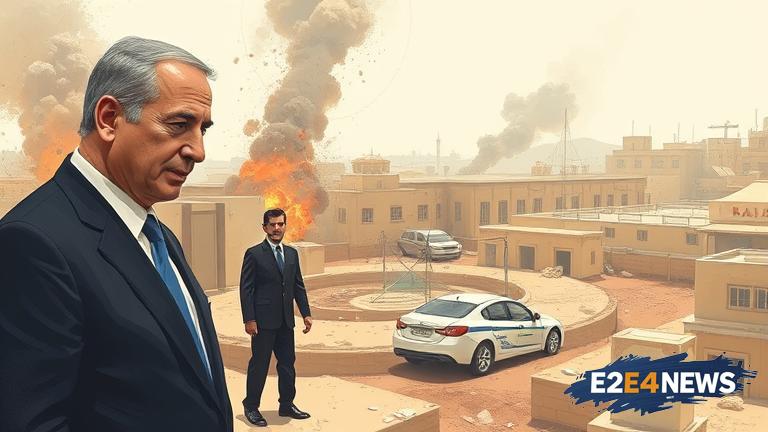The recent announcement by Israeli Prime Minister Benjamin Netanyahu to fully occupy the Gaza Strip has sent shockwaves across the globe, with many expressing deep concern over the potential consequences of such a move. The plan, which aims to assert complete control over the densely populated region, has been met with widespread criticism from human rights organizations, world leaders, and Palestinian authorities. Critics argue that the occupation would lead to a significant escalation of violence, displacement of civilians, and a worsening of the already dire humanitarian situation in Gaza. The United Nations has warned of a potential genocide, citing the severe restrictions on movement, access to basic necessities like food and water, and the ongoing blockade of the region. Netanyahu’s plan has been seen as a blatant disregard for international law and the rights of the Palestinian people. The Israeli government has been accused of attempting to annex the Gaza Strip, which would be a clear violation of the Geneva Conventions and the principles of sovereignty and self-determination. The international community has been urged to take immediate action to prevent the occupation and to hold Israel accountable for its actions. The European Union, the United States, and other major world powers have been called upon to condemn the plan and to work towards a peaceful resolution to the conflict. The Palestinian Authority has denounced the plan as a ‘declaration of war’ and has vowed to resist the occupation by all means necessary. The Gaza Strip, which has been under Israeli blockade since 2007, is home to over 2 million Palestinians, many of whom are refugees who have been displaced from their homes. The region has been plagued by poverty, unemployment, and a lack of access to basic services like healthcare and education. The occupation would only serve to exacerbate these problems, leading to a further deterioration of the humanitarian situation. The Israeli government has claimed that the occupation is necessary for security reasons, citing the threat posed by Hamas and other militant groups in the region. However, critics argue that the occupation would only serve to fuel further violence and extremism, rather than addressing the root causes of the conflict. The plan has also been seen as a attempt to distract from the ongoing corruption scandal surrounding Netanyahu, who is facing indictment on charges of bribery and fraud. As the situation continues to unfold, the international community remains on high alert, with many fearing the worst. The United Nations has called for an emergency meeting to discuss the situation and to explore options for preventing the occupation. The world waits with bated breath as the fate of the Gaza Strip and its people hangs in the balance. The occupation would have far-reaching consequences, not only for the Palestinian people but also for the region as a whole. It would likely lead to a significant escalation of violence, with potential spillover effects into neighboring countries. The international community must take immediate action to prevent the occupation and to work towards a peaceful resolution to the conflict. The use of force and coercion is not a solution to the conflict, but rather a recipe for further disaster. A negotiated settlement, based on international law and the principles of justice and equality, is the only way forward. The Palestinian people have the right to self-determination and statehood, and it is the responsibility of the international community to support them in their struggle for freedom and dignity. The occupation of Gaza would be a dark day for humanity, and it is the responsibility of world leaders to prevent it from happening. The clock is ticking, and the world must act now to prevent a humanitarian crisis of epic proportions. The consequences of inaction would be catastrophic, and the world would be forever changed by the occupation of Gaza. The international community must stand together to prevent this tragedy from occurring and to work towards a brighter future for all.
